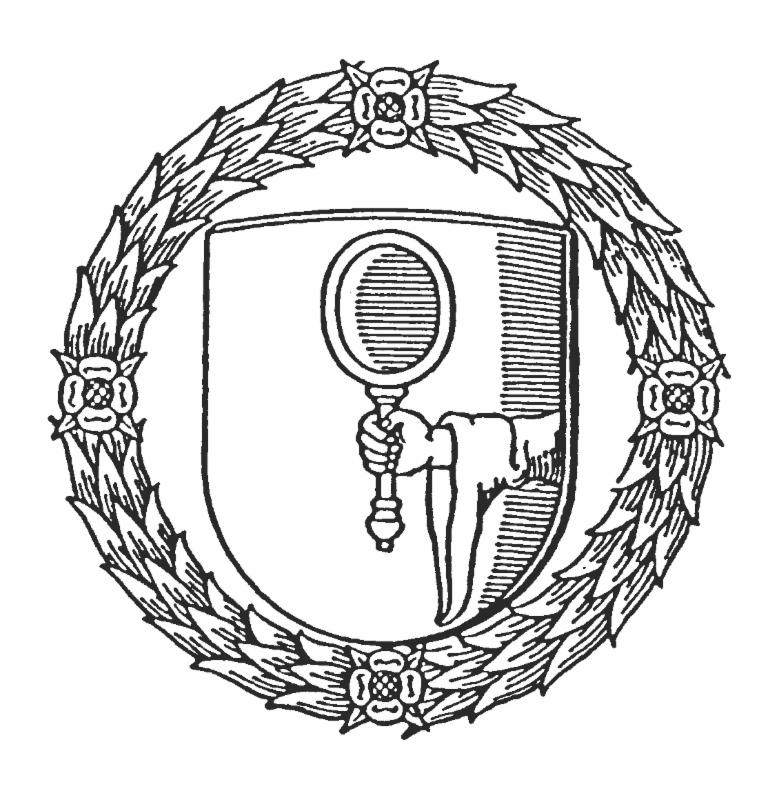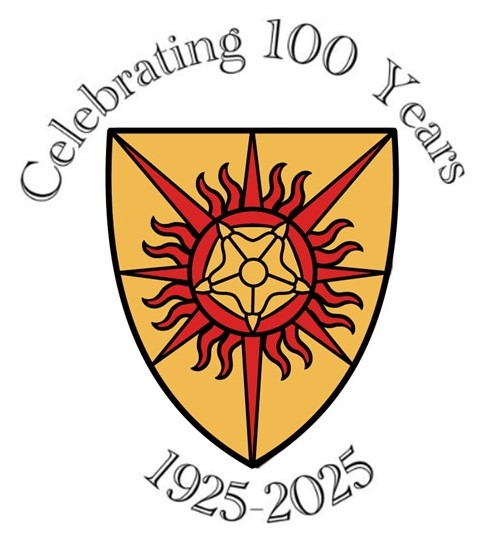I am thrilled to welcome you, at last, to the Centennial of the Medieval Academy of America! Years of planning have led us to this moment, and we have much to celebrate.
In the 1926 publication Progress of Medieval Studies in the United States of America, Prof. James Willard of the University of Colorado announced the incorporation of the “Mediaeval Academy of America,” the result of five years of planning by a dozen prominent American medievalists. They couldn’t unanimously agree on the name of the organization; they couldn’t agree on the title of its journal. One thing they did agree on was the choice of the Mediaeval Academy’s first president, E. K. Rand. In the inaugural issue of Speculum, Rand expressed a straightforward vision for the new organization: “The formation in America of a Mediaeval Academy is an encouraging sign of the times…[it] will, we hope, become a rallying point for the cultivation and study of these Middle Ages.” (Speculum 1/1, p. 3) (check out the January 2025 issue of Speculum to learn more about our origins and history).
The establishment of the Mediaeval Academy and the publication of Speculum were greeted with enthusiasm at home and abroad (albeit with a touch of skepticism overseas). In the German daily Neueste Nachrichten, Munich professor Paul Lehmann gasped, “Mittelalter und Amerika!” In Les Nouvelles Littéraires, French ex-pat Alcide de Andria, of Boston University, reported: “Une académie n’est pas aisée à fonder. C’est quelque chose qui ne se fait pas du jour au lendemain : il y a des obstacles, des lenteurs, que n’y a-t-il pas? Mais les Américains, gens supremement pratiques, ne connaissent pas ces embarras, et sans lettres patentes, sans un Richelieu, un Colbert, sans même un Mussolini, voilà, puisque académie il y a, qu’une Académie est immédiatement constituée. Rien de plus simple.”
When E. K. Rand delivered his 1926 presidential address, “Mediaeval Gloom and Mediaeval Uniformity,” the Academy had 503 members and $15,000 cash-on-hand. We’ve come a long way since then, with nearly 3,000 members worldwide and a significant endowment. As we enter our 100th year, Speculum continues to be the flagship journal of medieval studies, and we have expanded our grantmaking programming to support dozens of scholars every year with more than $115,000 in fellowship support. Although we’ve lost the “æ” in “Mediaeval,” our objectives remain the same as they were in our Articles of Incorporation: “to conduct, encourage, promote and support research, publication and instruction in Mediaeval records, literature, languages, arts, archaeology, history, philosophy, science, life, and all other aspects of Mediaeval civilization, by publications, by research, and by such other means as may be desirable, and to hold property for such purpose.” Today, as our mission statement declares, the Medieval Academy of America is a scholarly community committed to deepening, broadening, and sharing knowledge of the medieval past in an inclusive and equitable way. Join us as we celebrate our past and look towards our future! Here is some of what we have planned for 2025:
1) A Celebration that spans the continent! Our twenty-one Centennial Grant recipients are offering events and programs from Puerto Rico to Toronto and New Mexico to Massachusetts! Check out the combined calendar for an event near you, and be sure to read the Newsletter for updates and the monthly Centennial Spotlight to find out more.
2) Coming to a Campus near you: Thanks to a collaboration between CARA and the Fellows Executive Committee, we are able to facilitate a Centennial Speaker Series that will bring our Fellows to your campus. Click here for more information and to schedule a lecture!
3) Join us Online: We are thrilled to be offering significantly expanded online programming to celebrate our Centennial year, programs sponsored by the Digital Humanities Committee, the Graduate Student Committee, the Inclusivity & Diversity Committee, and more! See below for the latest announcements.
4) Our 100th Annual Meeting! Registration has opened for our Centennial Annual Meeting in Cambridge, Massachusetts, 20-22 March. Thanks to the generosity of our donors and multiple institutional sponsors of the conference, seventy-eight travel bursaries of $500 each have been granted to underfunded scholars so that they may travel to Massachusetts to present their work. This will be our largest and most complex meeting ever, with nearly 500 presenters, multiple exhibits, concerts and other performances, open houses, and some exciting surprises. The Program Committee has done a tremendous job of planning the conference, and I am so grateful to them all. See below for more information and to register!
We are extremely grateful to Tom Dale, Chair of the Centennial Committee, for his leadership of this planning process for the last several years, and to all of the Committee members for their work.
As Academy Fellow George La Piana wrote in his unpublished 1941 ode “De Mediaevalis Academiae,”
In aevum semper obstet malis
academia mediaevalis
vivat, crescat, floreat!
I look forward to celebrating with you!
– Lisa

 Happy New Year from the Editor’s Desk at Speculum: A Journal of Medieval Studies.
Happy New Year from the Editor’s Desk at Speculum: A Journal of Medieval Studies. The
The 

